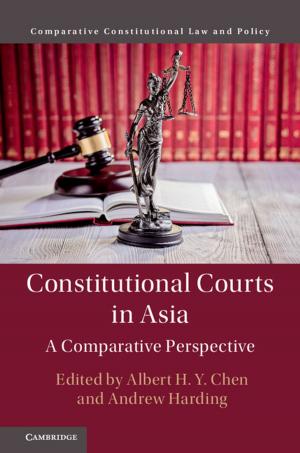Humanity at Sea
Maritime Migration and the Foundations of International Law
Nonfiction, Reference & Language, Law, International, Social & Cultural Studies, Political Science| Author: | Itamar Mann | ISBN: | 9781316784334 |
| Publisher: | Cambridge University Press | Publication: | September 29, 2016 |
| Imprint: | Cambridge University Press | Language: | English |
| Author: | Itamar Mann |
| ISBN: | 9781316784334 |
| Publisher: | Cambridge University Press |
| Publication: | September 29, 2016 |
| Imprint: | Cambridge University Press |
| Language: | English |
This interdisciplinary study engages law, history, and political theory in a first attempt to crystallize the lessons the global 'refugee crisis' can teach us about the nature of international law. It connects the dots between the actions of Jewish migrants to Palestine after WWII, Vietnamese 'boatpeople', Haitian refugees seeking to reach Florida, Middle Eastern migrants and refugees bound to Australia, and Syrian refugees currently crossing the Mediterranean, and then legal responses by states and international organizations to these movements. Through its account of maritime migration, the book proposes a theory of human rights modelled around an encounter between individuals in which one of the parties is at great risk. It weaves together primary sources, insights from the work of twentieth-century thinkers such as Hannah Arendt and Emmanuel Levinas, and other legal materials to form a rich account of an issue of increasing global concern.
This interdisciplinary study engages law, history, and political theory in a first attempt to crystallize the lessons the global 'refugee crisis' can teach us about the nature of international law. It connects the dots between the actions of Jewish migrants to Palestine after WWII, Vietnamese 'boatpeople', Haitian refugees seeking to reach Florida, Middle Eastern migrants and refugees bound to Australia, and Syrian refugees currently crossing the Mediterranean, and then legal responses by states and international organizations to these movements. Through its account of maritime migration, the book proposes a theory of human rights modelled around an encounter between individuals in which one of the parties is at great risk. It weaves together primary sources, insights from the work of twentieth-century thinkers such as Hannah Arendt and Emmanuel Levinas, and other legal materials to form a rich account of an issue of increasing global concern.















